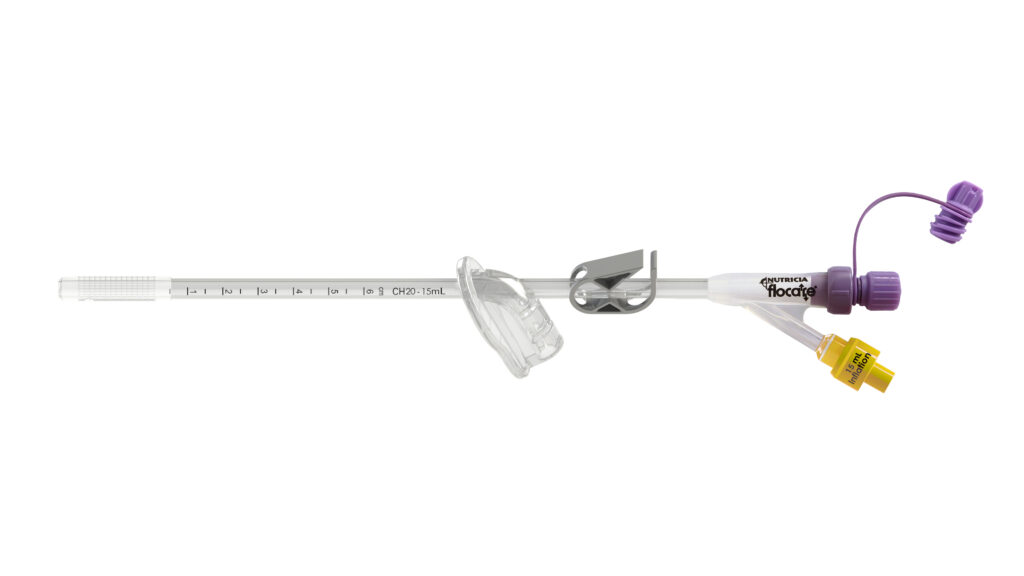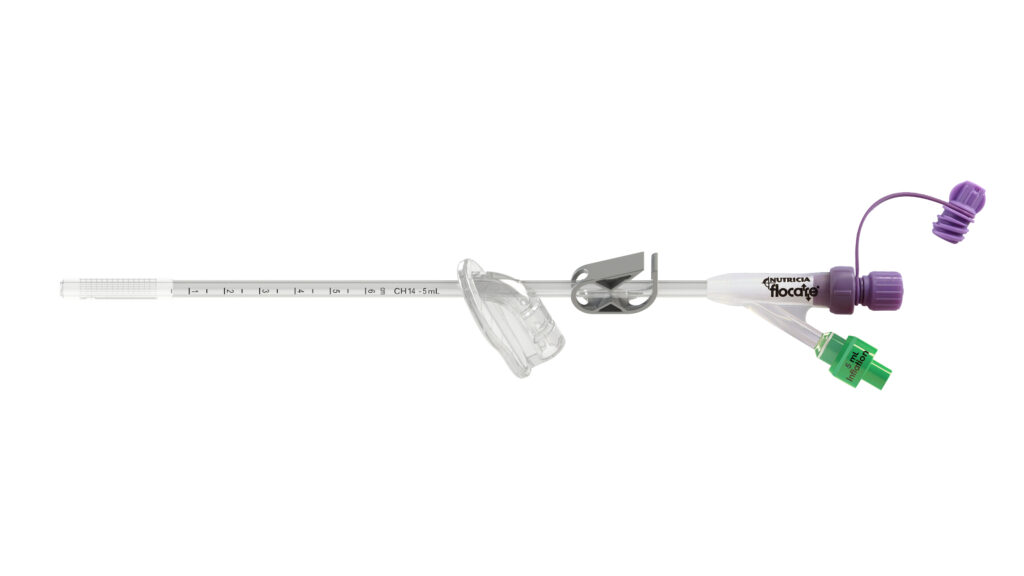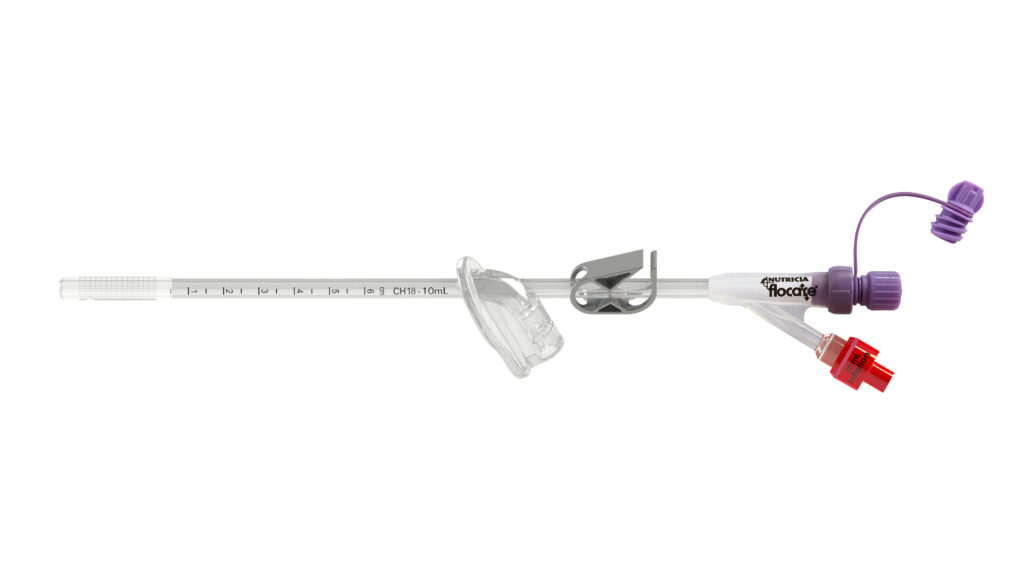


Product Information
The Flocare® Gastrostomy Tube (G-Tube) is a silicone balloon catheter that is ENFitTM compatible and designed for long-term gastric feeding.
Link copied!
Indications
- The placement of a gastrostomy tube is indicated for long-term gastric feeding and/or stomach decompression.
- As a replacement tube in a previously established stoma.
Important Notice
- Gastrostomy tubes should not be placed in the presence of an infected stoma site, ascites or peritoneal carcinoma.
Recommendations for Use
- Follow the Flocare ENFitTM G-tube guidelines on placement and daily care.
- Follow hygiene rules when handling feed, tubes and feeding sets.
- Flush the tube before and after feed and medication administration, at least 3 times a day.
- Colour of the balloon inflation port indicates Charriere size; the balloon filling volume is printed on the tube shaft and the inflation port: Green: FR2W Balloon – contents: 5ml, Red: 18FR 2W Balloon – contents: 10ml, Yellow: 20FR 2W Balloon – contents: 15ml.
- Fill the G-Tube balloon with water via the balloon inflation port.
A 10ml Leur Eccentric Syringe can be used to connect to this port and inflate the balloon. - Balloon inflation should be maintained at recommended volume as per manufacturer instructions to prevent inadvertent dislodgement, unnecessary gastric leakage and other stoma site complications. Frequency of balloon volume checks should be conducted as per advice from a healthcare professional.
Order Information
To order contact Nutricia Customer Care 0800 688 747
| Product | Colour | Code | Units per carton |
| Flocare ENFit G-Tube FR 2W | Green | 178131 | 2 |
| Flocare ENFit G-Tube 18FR 2W | Red | 178133 |
2 |
| Flocare ENFit G-Tube 20FR 2W | Yellow | 178134 | 2 |
